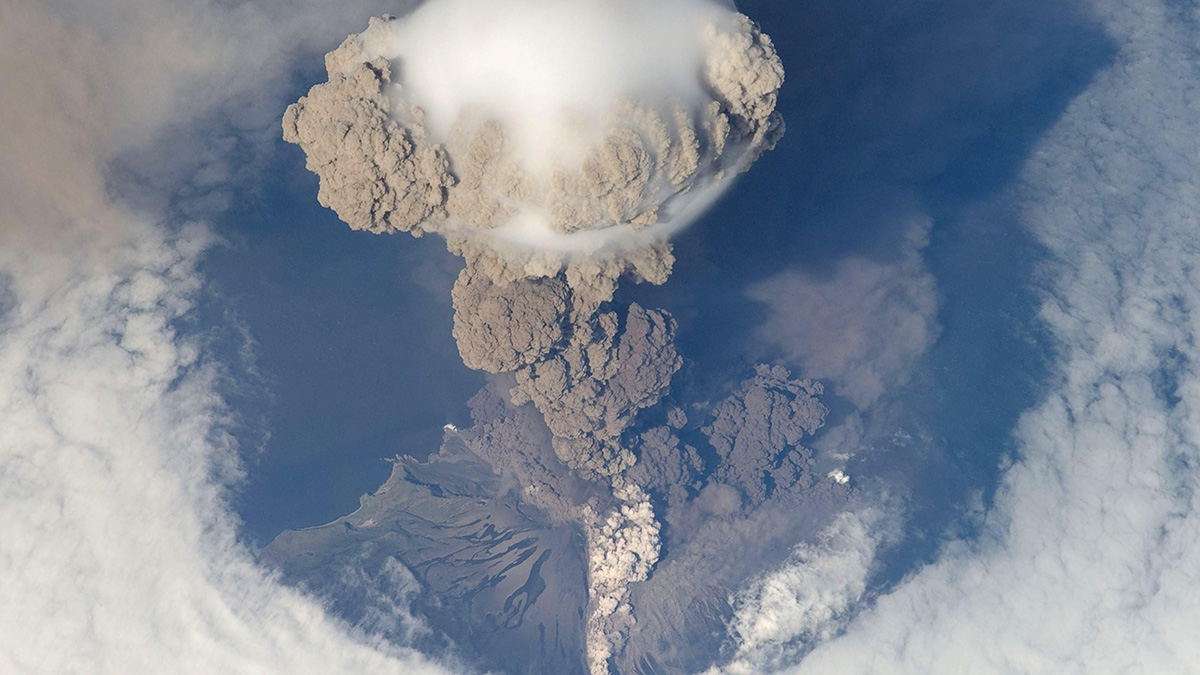packyderms_wife
Neither here nor there.

Volcanoes’ Future Climate Effects May Exceed Standard Estimates - Eos
Future releases of sulfur dioxide from volcanoes will likely be higher than the reconstructed historical levels currently used for climate predictions.
 eos.org
eos.org
Volcanoes’ Future Climate Effects May Exceed Standard Estimates
Future releases of sulfur dioxide from volcanoes will likely be higher than the reconstructed historical levels currently used for climate predictions.By Sarah Stanley29 June 2023

Astronauts aboard the International Space Station photographed this large eruption from Sarychev volcano in the Kuril Islands of Russia in June 2009. Credit: NASA
Source: Geophysical Research Letters
When volcanoes erupt, they often spew large amounts of sulfur dioxide into the atmosphere. This toxic, foul-smelling gas may then form tiny sulfate particles that particularly in the stratosphere, can influence Earth’s climate for months to many decades.In modeling future climate change, scientists have therefore incorporated the effects of volcanic eruptions. However, Chim et al. now show that there is a 95% chance that volcanic eruptions between 2015 and 2100 will release more sulfur dioxide into the atmosphere than standard climate models currently assume.
The challenge of predicting future sulfur dioxide release arises because eruptions cannot be precisely forecasted. So standard climate models have typically relied on averaged historical sulfur dioxide release data from 1850 to 2014, under the assumption that future releases will be similar. However, this approach does not account for large variation in releases that can occur from century to century, nor does it account for small-magnitude but frequent eruptions that are not captured in historical records.
To address these shortcomings, the researchers used updated data sets from satellites and ice cores, which provide a glimpse into eruptions over the past 11,500 years, to simulate the effects of future volcanic sulfur dioxide releases. They also applied a mathematical modeling method that more adequately represents eruptions of all magnitudes, and they developed a new modeling framework that better simulates plumes of gases and other materials ejected in eruptions.
Their analysis suggests that existing climate projections most likely underestimate the effects of volcanic sulfur dioxide on Earth’s climate, including on global surface temperature, sea level, and sea ice extent. It also indicates that existing models appear to inadequately account for the effects of smaller-scale eruptions that add up over time to influence climate significantly.
The researchers recommend that standard climate models—in particular, those produced as part of the Coupled Model Intercomparison Project—be updated accordingly. (Geophysical Research Letters, https://doi.org/10.1029/2023GL103743, 2023)
—Sarah Stanley, Science Writer



